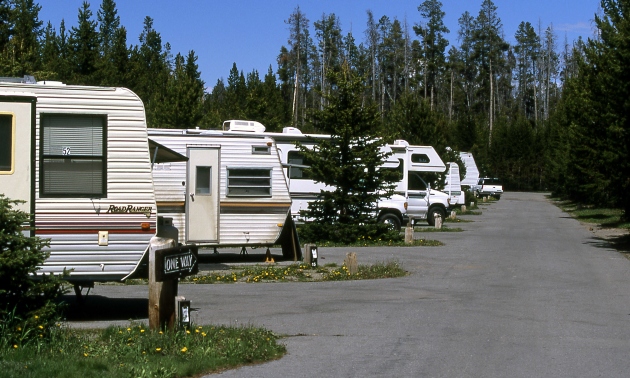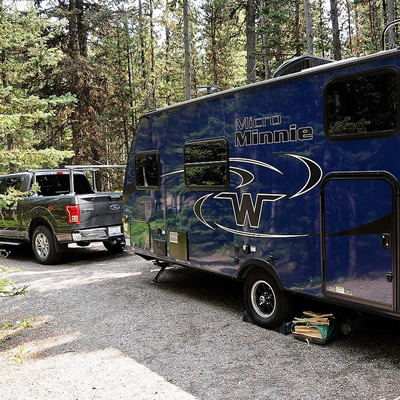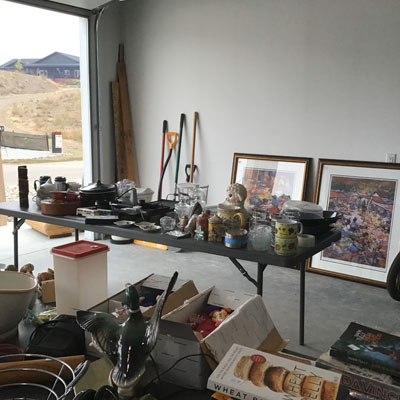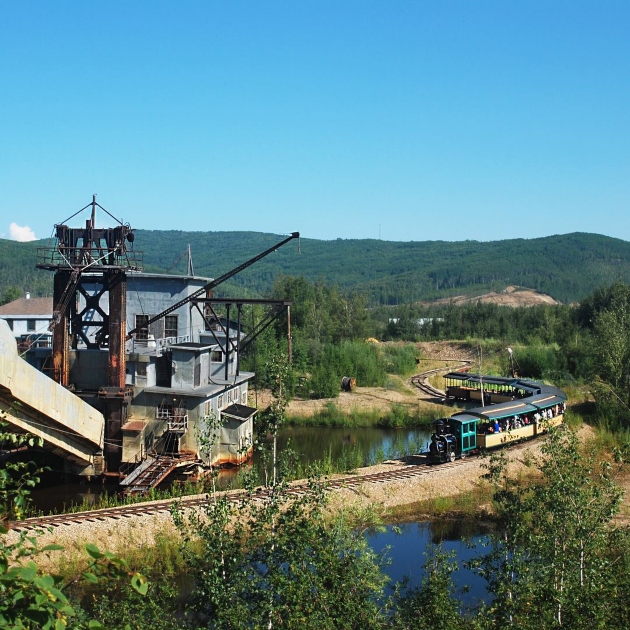10 Common mistakes new RVers make
If your RV experience involves some trial and error, you're not alone!

Don’t feel bad. You’re not alone. Those mistakes you made when first starting your RV adventure have been made by everyone! I mean everyone! I don’t think any RVer can honestly say their RVing experience has been without its challenges.
Personally, I feel that RVing is about the journey and not just the destination. Sometimes we focus too much on buying an RV and heading out before we give serious thought as to the purpose or reason why RVing is important to us. This can lead to problems that can be avoided with just a little bit of pre-planning and knowing what our goals are.
1. Buying the first RV you see
It’s so easy to get sidetracked by all the shiny and pretty things many RVs come with. Seriously think about what the purpose of the RV is, whether it’s for summer vacations at a nearby lake, long term travel, or for living in. Ask yourself what’s important and what you need to be comfortable. Then match up your RV with the vehicle you’ll be towing it with, or if it’s a motorhome, are you capable of driving it?
Be clear in your own mind as to what your budget is, your needs are, and take your time. The most important advice you can be given is for you not to buy the first RV you see.
2. Having the wrong tow vehicle
Can your vehicle tow your RV safely and legally? It’s important to know that not all RV dealers understand weights and towing capacities of the RVs and other vehicles they sell. When buying an RV that requires towing make sure the vehicle you’ll be towing it with is up to the job. Something to remember when considering weights, is whether your RV is loaded with your personal belongings or empty.
3. Lack of RV training
There’s a lot to learn when first starting out as a new RVer. Take the time to ask questions, attend seminars at trade shows, watch YouTube videos, and read your manuals. Learn how things work and how to maintain them, which could save you a great deal of money and a big headache if they break down in the future.
4. Travelling too far in one day
What’s your hurry? Did you know that RVing is also about the journey and not just the destination? Take your time, slow down, and enjoy the experience. There’s no point in rushing from point A to point B just to arrive exhausted and not able to relax. Many RVers recommend not arriving after 3:00 pm, giving you time to get setup before dark.
5. Overloading your RV
It’s easy to get carried away when loading your RV with clothes, food, toys, and everything else you think you might need. There’s a limit to what your RV can carry. Know your weights and if in doubt on how much your RV weighs take it over a commercial scale for clarification.
6. Not pre-planning your route
Do you know the best route for your RV? The highways and roads in both Canada and the US are all different. There are major highways, narrow backroads, gravel roads, and low hanging overpasses. Your height and weight make a difference when planning your route to eliminate problems along the way.
7. Not booking campgrounds in advance
Imagine driving all day, heading to your favourite campground only to arrive and learn they have no vacancies. It’s a busy weekend and everything has been booked well in advance. Now what do you do? Go home?
8. Not having any checklists
There are checklists for everything relating to RVing, from what to look for when buying an RV, what to pack, how to setup your RV, to maintenance plans and everything in between. Even experienced RVers have their personal checklists to follow at each stage of their journey. Checklists will save you from forgetting to do things like lowering the antennae to raising the jacks before driving away from the campsite.
9. Lack of maintenance
Don’t neglect regular maintenance or not respond to recall notices from the manufacturer. Ensuring your tire pressure is correct before heading out, having regular oil changes, and following a recommended maintenance plan will keep you safe and your RV in good condition. RVs aren’t cheap and by looking after it properly will ensure an increased amount of time you get to enjoy yours.
10. Lack of experience driving and parking your RV
If you’ve never taken the time to practice hooking up, driving, parking, and backing up your RV you’re setting yourself up for problems. On top of that it’s important to know how to hook everything up and to breakdown camp at the end of your trip.
Take the time to practice hooking up your RV to your tow vehicle a few times until you’re confident in your ability to do the job. Then it's time to take it out on the road. Find a safe place to practice driving, parking, and backing up without an audience who usually throw out instructions and distract you from doing a good job.
Slow down!
Remind yourself of this when shopping for your RV, loading it up, driving it away on your first trip and during every other aspect of your RV adventure. Slowing down will help keep you safe and reduce potential problems in the future.
Remember, the mistakes you make have already been done by other RVers—you’re not alone!








